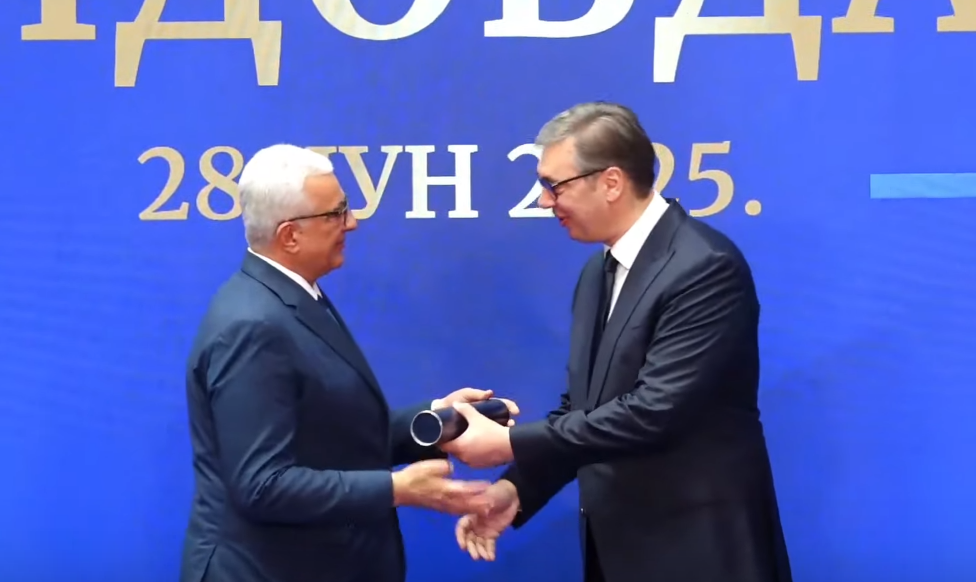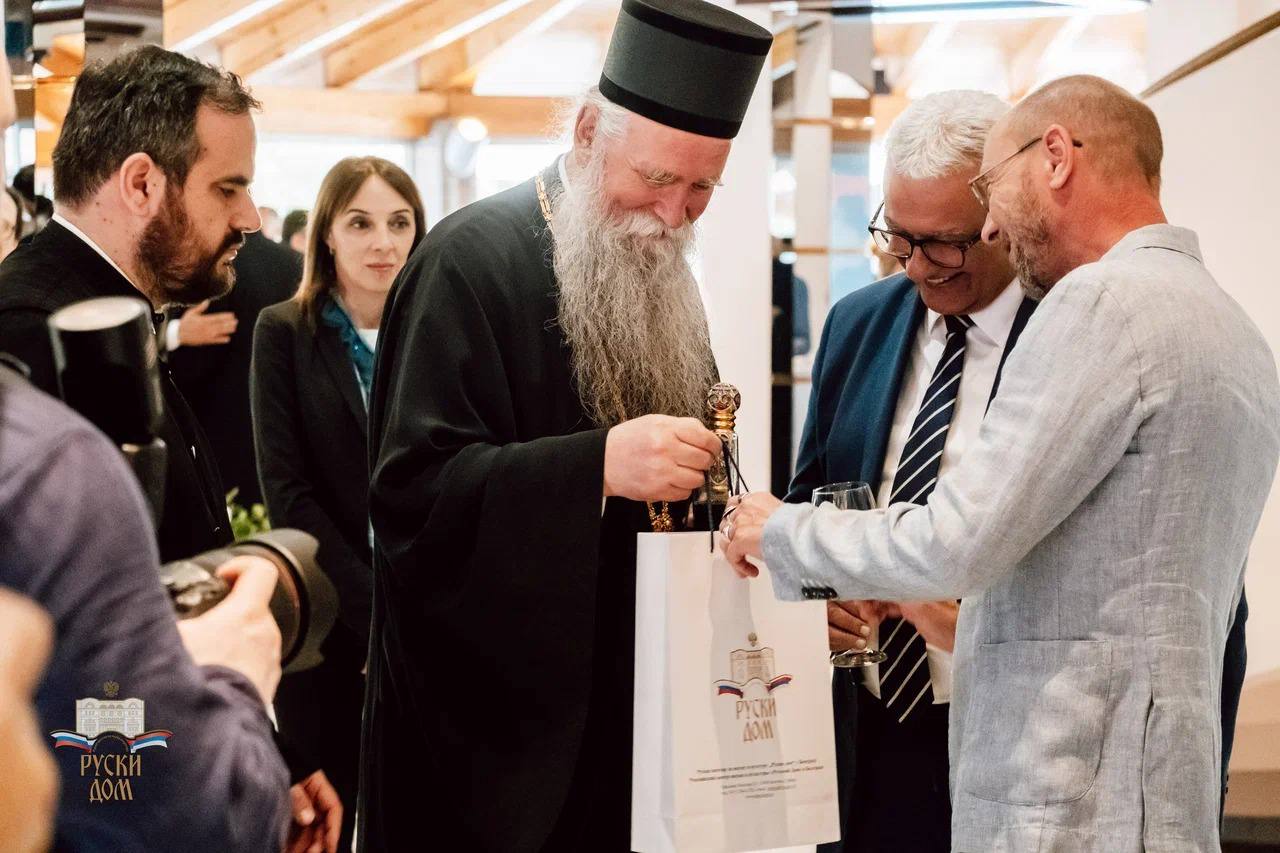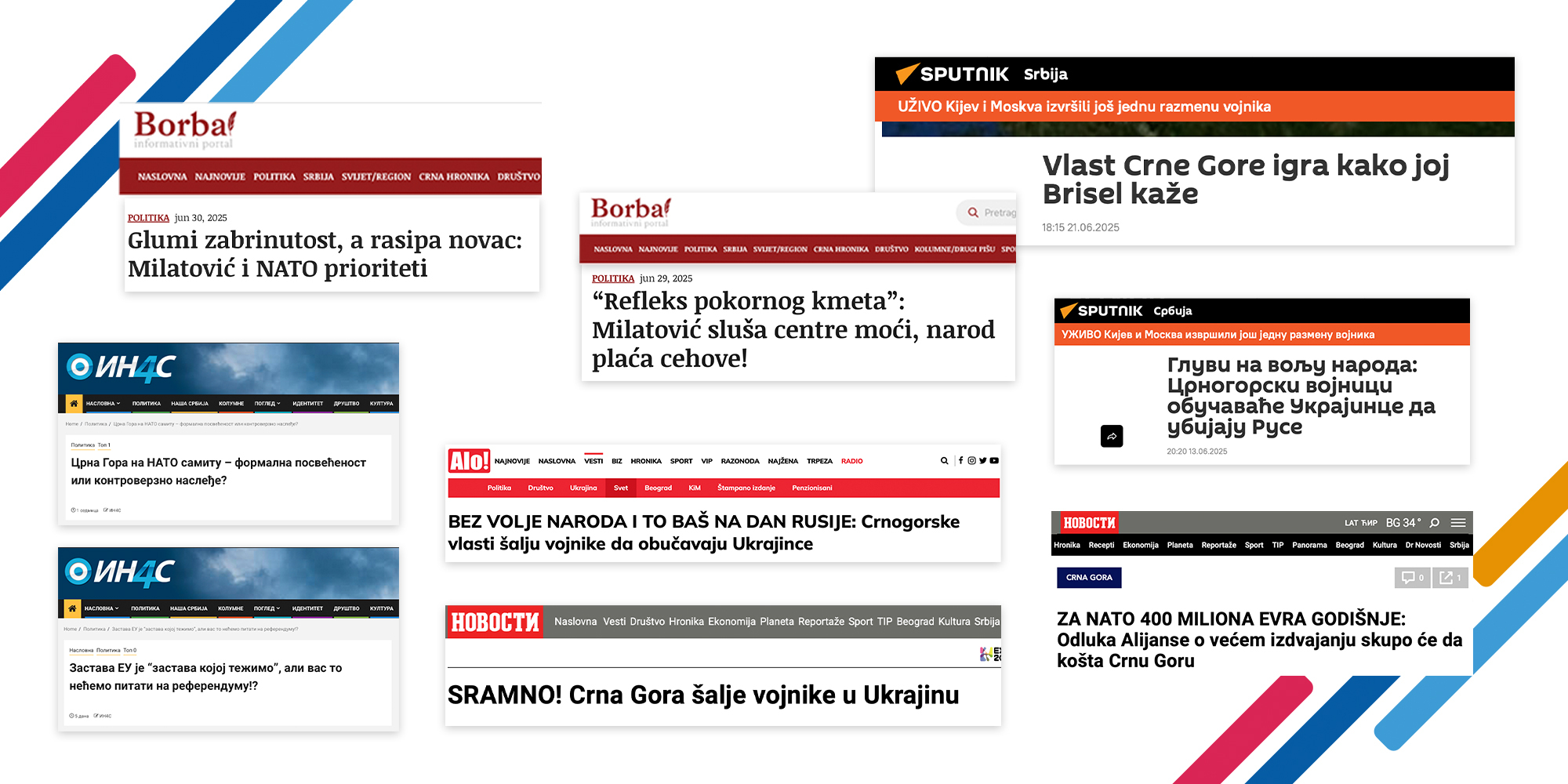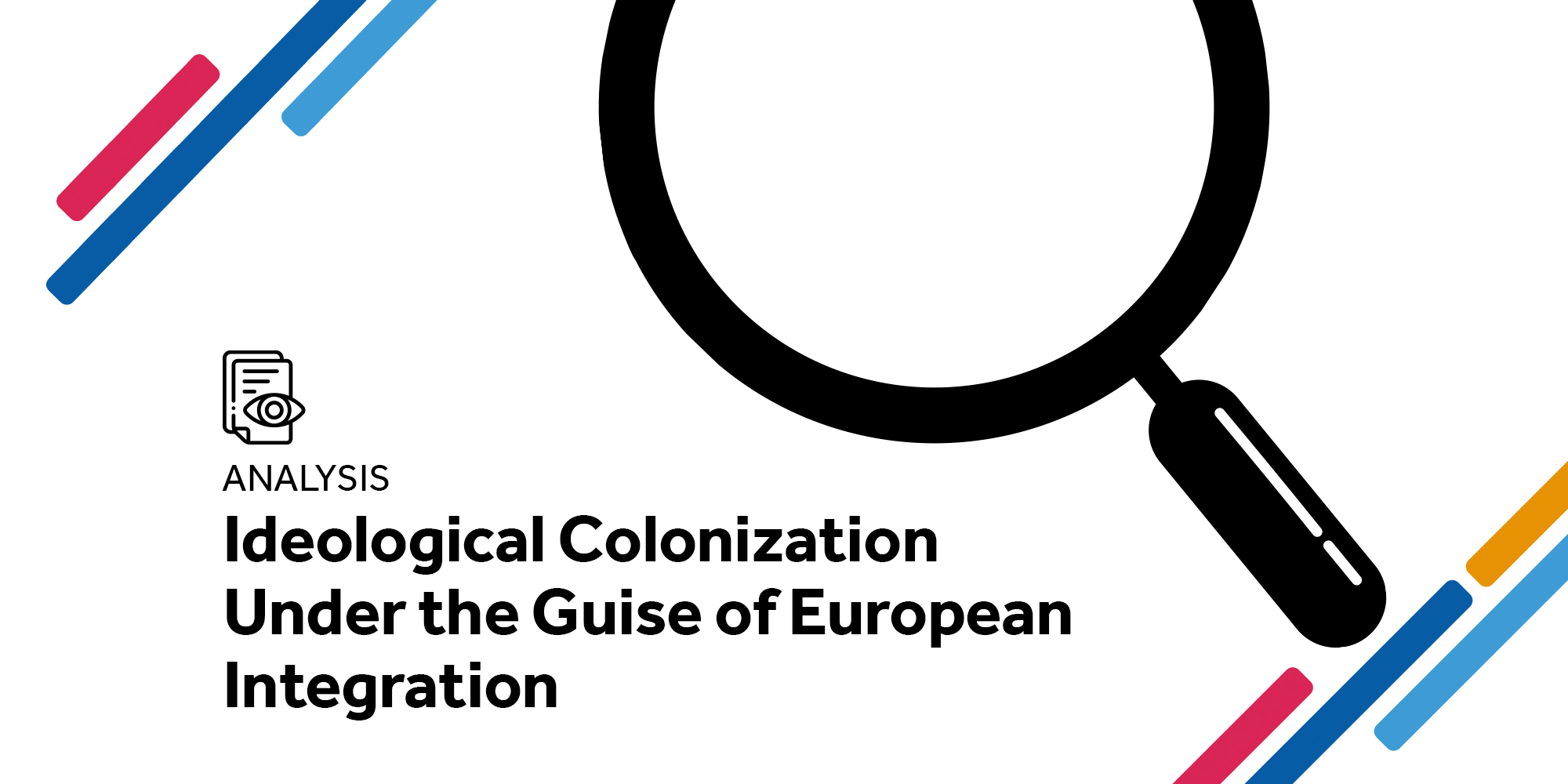The contemporary political discourse in Montenegro, as well as in the broader Western Balkans region, is increasingly difficult to interpret solely through the lens of declarative statements and formal stances of political actors. In a region marked by complex historical legacies, sensitive identity issues, and multifaceted foreign influences, the behavior of leaders often reflects deep pragmatism and a tendency for rhetorical maneuvering. This suggests that the actions of certain political figures are primarily aimed at achieving short-term political objectives. A telling example of such political flexibility is the behavior of Andrija Mandić, the President of the Parliament of Montenegro, who attempts to balance traditional ties with Moscow and Belgrade with formal alignment with Euro-Atlantic structures.
Mandić’s recent rhetoric, particularly in appearances before Western partners, including a recent interview with the American magazine The National Interest, does not reflect a fundamental ideological transformation. Instead, it points to a tactical adaptation to contemporary geopolitical conditions, internal challenges, and international pressures. His position as head of the legislative body in a NATO member state and EU candidate requires a degree of alignment with allies and partners, yet simultaneously reveals his careful preservation of narratives aligned with the Russian-Serbian political and ideological framework.
The duality of his political positioning, simultaneous loyalty to Vladimir Putin and Aleksandar Vučić while expressing support for Euro-Atlantic initiatives, represents a case of political mimicry. This phenomenon emerges as a response to layered foreign pressures, and it is a form of hybrid foreign policy that undermines Montenegro’s sovereignty and strategic orientation.

Mandić’s political strategy fits into a broader pattern of behavior among Western Balkan elites, who, influenced by the competing interests of great powers, pursue a foreign policy matrix of balancing between the West, Russia, and China. This model is most consistently implemented by the official Belgrade through its so-called four-pillar foreign policy. Although it is often justified as political flexibility, in practice, it leads to inconsistency, diminished trust among international partners, and undermines the path toward EU integration.
Public statements, political moves, and Mandić’s persistent ideological affinity with Russian and Serbian policy highlight a fundamental discrepancy between his proclaimed commitment to European values and his practical allegiance to Moscow and Belgrade. Particularly noteworthy are his rhetorical expressions of loyalty to Putin and Vučić, whom he presents not merely as foreign leaders, but as legitimate political authorities for Serbs in Montenegro. This directly challenges the sovereignty of Montenegrin institutions and the coherence of its foreign policy.
The susceptibility to malign foreign influence, primarily from Moscow and Belgrade, represents a major political and security challenge for Montenegro. The role of the Parliament Speaker must be examined not only through public appearances but also through the functional institutional power he holds. His actions have the potential to redefine the tone of political discourse and the foreign policy orientation of the country. If pro-Western rhetoric remains merely a tactical positioning and devoid of substantive actions, trust in Montenegro’s EU trajectory, both domestically and internationally, will be seriously compromised.
Rhetorical ambiguity is further reinforced by the narrative of Serb endangerment, revisionist interpretations of historical events, the deepening of divisions through issues of language and citizenship, and calls for spiritual and cultural unity with Serbia and Russia. Rather than building a civic society grounded in universal values, such narratives deepen ethno-national divisions, instrumentalize identity, and politicize state institutions. Within the context of Euro-Atlantic integration, which requires political coherence, institutional stability, and a clear commitment to common security and value frameworks, such behavior represents a significant obstacle.
Mandić’s statement to The National Interest, in which he claims Montenegro has the ambition and realistic chance to strengthen its alliance with the U.S. and is among the few countries aiming to allocate 5% of its budget to defense, is in contrast with his earlier ideological profile. This statement cannot be viewed as a separate case, considering his years of staunch anti-NATO, pro-Russian, and anti-Western rhetoric.
Mandić’s earlier appearances and political stances leave no doubt when it comes to his past relationship with NATO, which he described as brute force, an enemy of freedom, and a structure that controlled Milo Đukanović’s regime. As he stated, those who bombed us, killed us, and poisoned us with depleted uranium cannot be a backbone for Montenegro; instead, the country should turn to Russia. These statements are an integral part of a broader pro-Russian and anti-Western discourse.
While in the opposition party, Mandić used such claims to label NATO and Western partners as historical aggressors and geopolitical imperialist actors, while portraying Russia as Montenegro’s historical protector. However, even though he was already part of the government in April 2024, he reiterated his stance on Montenegro withdrawing from NATO, confirming the continuity of his anti-NATO views. This suggests that a change in rhetoric doesn’t necessarily mean a fundamental shift in political beliefs. Therefore, the statements made to an American media outlet in June 2025 indicate an adaptation to new circumstances—specifically, an adjustment of his discourse and rhetoric depending on the intended audience. For the domestic audience and voters, Mandić remains a consistent advocate of pro-Russian narratives, while for the international stage, he adapts his tone and rhetoric, emphasizing partnership with the United States and an accelerated process of European integration.
Comparing Mandić’s statements from his 2019 meeting with Russian President Vladimir Putin to his 2025 appearance in the American magazine The National Interest, we can see his adaptation for political survival and positioning within different geopolitical narratives, shifting from Pan-Slavic brotherhood to a pro-American partnership. On one hand, he previously stated that the majority of Montenegro views Putin as their president. Yet, in his 2025 interview as the President of the Parliament of Montenegro, Mandić addresses the American political establishment using the language of strategic compatibility with Donald Trump’s policies. He emphasizes Montenegro’s contributions to NATO goals, an increased defense budget, and economic potential for American investments, even claiming that President Trump enjoys significant popularity in Montenegro. In this appearance, Mandić makes no mention of closeness to Russia; instead, he fully embraces the framework of transatlantic partnership.
Andrija Mandić’s statements during the 2023 election campaign, in which he strongly attacked the Europe Now Movement (PES) and foreign embassies, stand in sharp contrast to the political reality of 2025. The very coalition he leads, For the Future of Montenegro (ZBCG), now forms part of the current parliamentary majority and participates in the executive government alongside PES. Back then, Mandić spoke of alleged attempts by foreign embassies to form a new government through PES and a rejuvenated DPS, which would enable the return of defeated forces. PES was then presented as an extension of international structures, and embassies were accused of impermissible interference in Montenegro’s internal political processes. However, two years later, representatives of ZBCG and PES are jointly participating in creating and implementing policies at the highest level. This shift points to a deep contradiction between the narratives of the past and current political practice, revealing the flexibility and instrumentality of rhetoric used to mobilize voters and for political positioning before elections.
Despite publicly presenting himself as a politician who supports a strategic partnership with the United States and emphasizes Montenegro’s swift EU membership, Andrija Mandić still made time to attend the celebration of Russia Day on June 12, 2025, in Podgorica.
At this event, the new Russian Ambassador, Aleksandar Lukašik, propagated anti-Ukrainian and anti-Western narratives. He stated that in the hybrid war against Russia and the full support for the Kyiv regime, we see the West’s desire to eliminate an opponent in the form of our country, in which it sees the main obstacle to maintaining its dominant positions on the international stage, and that Russia is fighting terrorist actions as part of a special military operation. It’s worth remembering that in July 2022, Andrija Mandić himself referred to the Russian aggression against Ukraine as a special military operation. In addition to Andrija Mandić, the reception was also attended by the leader of the Democratic People’s Party, Milan Knežević, as well as numerous other individuals who consistently disseminate Russian disinformation narratives. These individuals do so through media reporting, various activities, and close ties with the Russian military or Russian right-wing associations. Among them, prominent attendees included Igor Damjanović, correspondent for the unregistered pro-Russian and pro-Serbian portal IN4S; Metropolitan Joanikije of Montenegro and the Littoral; Father Mijajlo Backović; Zdravko Nišavić, representative of Miholjski Zbor; Momčilo Vuksanović, President of the Serb National Council; representatives of Prava Crna Gora (True Montenegro) and Slobodna Crna Gora (Free Montenegro); Boro Đukić, former Honorary Consul of the Russian Federation in Montenegro; and a delegation from the Russian House in Belgrade, led by Yevgeny Baranov.


The Reality of Montenegro’s EU Integration
The contradiction in Mandić’s statements regarding his support for Montenegro’s European integration is best highlighted by the positions outlined in the Resolution on Montenegro, adopted by the European Parliament on June 18, 2025. Among other things, the resolution expresses serious concern about malign foreign influence directly aimed at halting Montenegro’s European integration. The European Parliament’s report confirmed the facts and problems facing Montenegrin society – issues the Digital Forensic Center has been highlighting since its establishment. Primarily, it emphasized the actions of anti-Western elements within Montenegrin society who are carrying out the agendas of Russia and Serbia.
The European Parliament’s (EP) rapporteur for Montenegro, Marjan Šarec, stated at the conference The Future of European Union Enlargement – The Future is Now, that Montenegro must remain an autonomous, independent state not run by anyone from abroad, a state that has its backbone and wants only the best for itself.
The Resolution on Montenegro highlighted several concerning negative trends:
- The Serbian Orthodox Church is acting as an instrument of foreign influence.
- Disinformation, historical revisionism, and the glorification of war criminals.
- Deliberate undermining of relations with neighboring countries.
- Abuse of identity-related issues to spread polarization and destabilization.
- The use of initiatives such as the introduction of dual citizenship and the Law on Foreign Agents to destabilize and halt Montenegro’s European path.
All the aforementioned points are a direct result of the actions taken by Andrija Mandić and his party colleagues within the Parliament and Government. The Digital Forensic Center (DFC) has consistently highlighted these negative trends through its analyses, studies, reports, statements, and public appearances. Unfortunately, part of the Montenegrin government that formally supports Montenegro’s Euro-Atlantic orientation, as well as certain Montenegrin institutions, have not been receptive enough, nor have they shown sufficient political will, to counter malign foreign influence. The fight against foreign interference has never been at the top of the Montenegrin authorities’ agenda, neither the current administration nor the one led by the Democratic Party of Socialists. This lack of reaction to such negative phenomena could have serious consequences for our country’s European integration.
Apart from the inadequate response from the authorities, we’re also facing a continuous relativization of foreign influence. Narratives claiming there’s no malign Serbian influence in Montenegro, that Serbia doesn’t interfere in Montenegro’s internal affairs, that the Serbian Orthodox Church (SPC) has a positive societal impact, that the “litije” (religious processions) were an emancipatory movement, that Russian influence is at an historical minimum, and that analyses of foreign influence are just a smokescreen to defend the DPS government—these are just some of the methods used to downplay foreign interference.
Going a step further, Russian and Serbian proxies are now accusing the EU, NATO, the US, and other Western partners of foreign interference themselves. Simultaneously, mirroring autocratic regimes like that in Russia, they are targeting organizations that actively combat foreign interference, advocating for the adoption of laws that would effectively prevent these organizations from operating..
Anti-NATO and Anti-EU Narratives
Pro-Serbian and pro-Russian portals Borba and IN4S are actively shaping and disseminating anti-NATO and anti-EU narratives, a hallmark of pro-Kremlin and pro-Serbian media discourse. The anti-NATO narrative is central to all articles published by the Borba portal concerning the proposed increase of Montenegro’s defense spending to 5% of GDP. President Jakov Milatović’s decision is not only interpreted as unfair, but also as treacherous and non-transparent, given that it was made without consultation with citizens or the Parliament. The budget increase for defense is framed as submission to power centers in Brussels and Washington, thereby emphasizing Montenegro’s status as a colony rather than a sovereign state. These portals stress that NATO imposes obligations that destroy citizens’ living standards, while completely ignoring or denying the benefits of membership. At the same time, Andrija Mandić’s statements on allocating 5% of GDP to defense, made during his interview with The National Interest magazine, were not a subject of interest for these pro-Russian and pro-Serbian portals.
The unregistered pro-Serbian and pro-Russian portal IN4S is building an anti-EU narrative framed around a supposed democratic deficit. President Milatović’s statement that the EU flag represents the values Montenegro strives for is met with suspicion, with the following narratives. The European Union is portrayed as a new imposed reality, analogous to past changes in state symbols and the status of the Serbian language. This draws a parallel between Montenegro’s European integration course and a supposed forceful distancing from Serbian identity. IN4S also spreads narratives that question the legitimacy of Montenegro’s NATO membership. The recently held NATO summit is used to reassert the old argument that Montenegro joined NATO without the consent of its citizens.
The articles on Borba and IN4S are part of an ideologically driven and systematically executed campaign against Montenegro’s Western integration. The European Union and NATO are framed as synonyms for a loss of sovereignty, with citizens being portrayed as passive observers of projects implemented by foreign political and military structures – complicit with domestic elites. This creates an image of a state that does not control its own internal and external policies, but rather carries out the will of foreign actors. This is a classic template of pro-Russian geopolitical propaganda, often aimed at discouraging NATO and EU integration in post-Soviet and Balkan states.
Beyond Montenegro’s own pro-Serbian and pro-Russian online outlets, media portals in Serbia and branches of Russian media in the Balkans play a significant role in promoting anti-Western and pro-Russian narratives. An analysis of two articles published by Sputnik Serbia and Večernje Novosti reveals strong criticism of Montenegro’s foreign policy and security alignment. Dominant narratives in these pieces revolve around themes of estrangement from Serbia, servility toward the West, illegitimate decision-making, and the financial and security unsustainability of NATO integration. Furthermore, these outlets feature narratives that glorify Russia. Conversely, Montenegro’s decision to send its soldiers to the European Union Military Assistance Mission in support of Ukraine is presented as an act of betrayal against Russia. This decision provoked strong reactions from pro-Russian circles who, by manipulating information and using specific narratives, attempted to influence public emotion and perception. For instance, Sputnik Serbia, a branch of the Kremlin’s propaganda channel, pushed the narrative that Montenegrin soldiers would be training Ukrainians to kill Russians, subtly implying direct military aggression against Russia and aiming to provoke public fear. They also perpetuated the common claim that Montenegro is acting under Western pressure, implying a loss of its sovereignty. Tabloids controlled by the Serbian regime reported in a similar vein, emphasizing that Montenegro made a shameful decision without the will of the people, specifically on Russia Day. The goal of such reporting is to activate pro-Russian sentiments in Montenegro and explain government decisions through narratives of external pressure.

Undermining Relations with Neighboring States
Despite Montenegro’s official commitment to regional cooperation and good neighborly relations, statements, actions, and the operations of certain actors and media outlets openly undermine relations with Croatia, Kosovo, and Bosnia and Herzegovina. Even though such instances are often downplayed, their frequency and the passivity of institutions point to revisionist and nationalistic tendencies that erode regional stability and Montenegro’s European integration efforts.
A roundtable titled Kosovo and Metohija, Yesterday, Today, and Tomorrow, organized by the Serbian Orthodox Spiritual Center in Herceg Novi, Montenegro, could potentially negatively impact relations between Podgorica and Pristina. This is especially concerning given that Montenegro recognizes Kosovo’s independence. Even though it’s an unofficial event put on by a religious community and a non-governmental organization, its symbolism and narrative orientation carry clear political significance. The risk is heightened when Kosovo is treated solely as a province and an integral part of Serbian national identity, without acknowledging its international status as an independent state. The lack of an institutional response from Montenegrin authorities to events of this nature could be interpreted as tacit support, particularly considering the increasing influence of the Serbian Orthodox Church in Montenegro’s public and political life.
The actions of Foreign Minister Ervin Ibrahimović regarding support for Kosovo’s membership in the Council of Europe were portrayed by Sputnik Srbija as submission to Western powers and betrayal of traditionally close relations with Serbia. Montenegro was depicted as a protectorate of Washington and Brussels, thereby denying its sovereignty and independent foreign policy.
While official political rhetoric emphasizes EU integration, pro-Serbian and pro-Russian portals (Borba, IN4S, and Aloonline) continuously publish emotionally charged content aimed at shaping public perceptions of Montenegro’s EU trajectory. These narratives often seek to disrupt good neighborly relations with Croatia. Central themes include war history, identity politics, and recent diplomatic decisions, presented as evidence of Montenegro’s capitulation to Croatian interests.
Articles assert that Montenegro is kneeling before Croatia while pursuing a hostile policy toward Serbia. A recurring theme is that Montenegro’s pro-European policy is a form of national betrayal and submission to Western powers. The EU integration process is thus delegitimized and portrayed as a path of humiliation, framing it to be in direct conflict with the interests of citizens and the state. This stands in direct conflict with the reality of European integration.
The analyzed texts aim to solidify identity-based and revisionist narratives. Instead of supporting cooperation and truth as fundamental values of EU integration, these narratives foster distrust and political polarization, directly undermining not only relations with Croatia but also the broader goals of Montenegro’s European policy.
European integration is not portrayed as a process of reform and enhanced regional cooperation, but rather as an instrument of sovereignty loss, which directly compromises its legitimacy in the eyes of the public. The statement by the President of the Parliament of Montenegro, Andrija Mandić, that we should enter the EU with our heads held high, not on our knees, aligns with these narratives. This rhetoric interprets European integration through the lens of loss of sovereignty, humiliation, and national subjugation.
Expansion of the Overton Window
Činjenica da je Bećir Vuković, negator crnogorske državnosti i promoter ideje srpskog sveta, dobitnik najvećeg državnog priznanja, Trinaestojulske nagrade, je eklatantan primjer uspješnog širenja Overtonovog prozora. Sama ceremonija dodjele nagrade i govor Andrije Mandića su još jedan pokazatelj toga.
Over the past five years, Montenegro has been grappling with the expansion of the Overton Window, a process that involves the acceptance and implementation of ideas once considered unthinkable for Montenegrin civil society. The actions of Andrija Mandić, pro-Serbian political parties, the Serbian Orthodox Church (SPC), and pro-Serbian media over this period have been aimed at establishing radical values that are unacceptable for a multi-ethnic, civil, and democratic society. A glaring example of this successful widening of the Overton Window is the fact that Bećir Vuković, a denier of Montenegrin statehood and a promoter of the Serbian world idea, received the highest state honor, the Thirteenth of July Award. The award ceremony itself and Andrija Mandić’s speech further underscore this disturbing trend.

Montenegro is experiencing an intensified process of historical revisionism and falsification. Despite declared support for EU integration, the actions of a significant part of the political establishment and institutions indicate active participation in agendas that directly contradict European values. Parallel to narratives about fighting crime and corruption, a process of fundamental transformation of Montenegro’s values and historical identity is underway. The Serbian Orthodox Church, Russian-Serbian political proxies, and the ideological apparatus tied to the Serbian world concept play a key role in this. It’s particularly concerning that revisionist narratives and propaganda patterns are being implemented under the guise of state and local institutions, often with institutional support. Despite warnings from the EU, a decisive institutional reaction is missing. The Montenegrin government, regardless of its declared pro-European rhetoric, has not systematically and strategically countered the spread of malign influence. Continued passivity could have long-term consequences for integration processes and the overall stability of Montenegrin society. If this continuity of action is not recognized and stopped, Montenegro risks permanently deviating from the path of European integration, becoming perpetually trapped between a democratic deficit, historical revisionism, and foreign policy dependence on undemocratic and authoritarian regimes.

